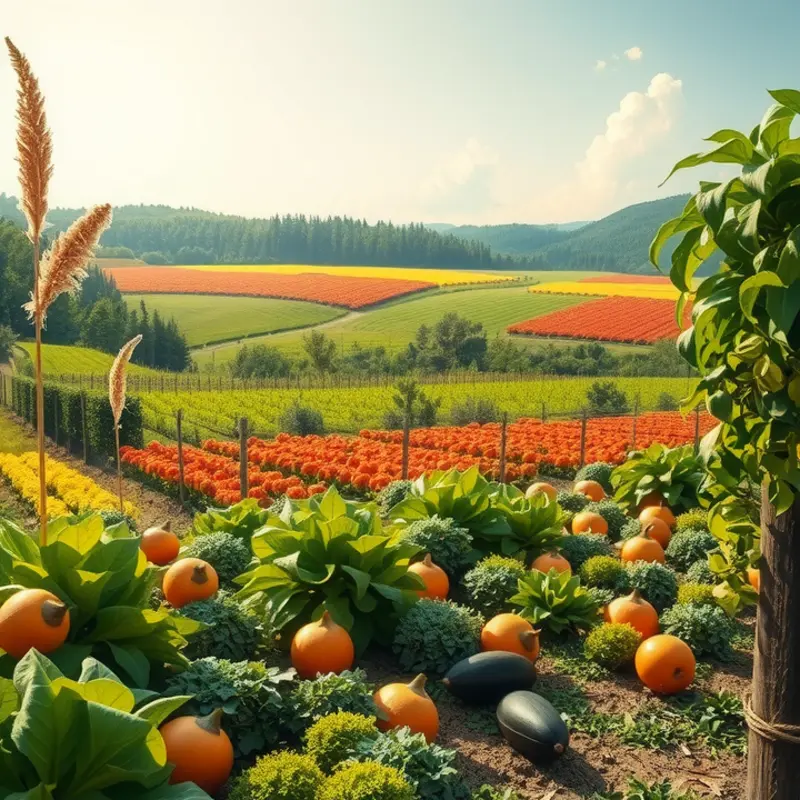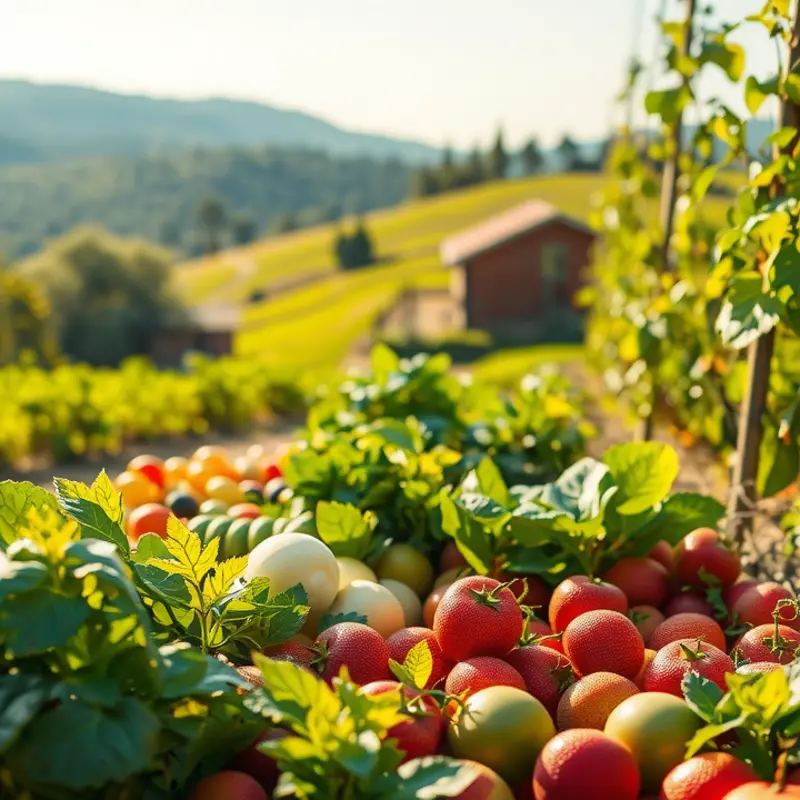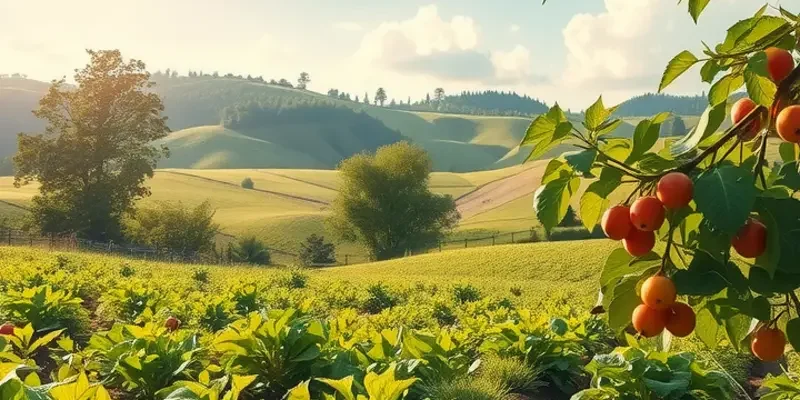Embracing eco-friendly food choices means understanding the vital role of soil health. Healthy soil nourishes plants, contributes to clean water systems, and absorbs carbon, significantly impacting our planet’s health. By exploring sustainable food practices, individuals can lead the way in fostering soil vitality while enjoying the benefits of fresh, nutritious produce. This journey not only revitalizes our environment but also enhances our overall well-being, establishing a profound connection between what we eat and how we care for our planet.
Cultivating Organic Choices

Choosing organic foods is more than a trend; it’s a commitment to restoring soil health and biodiversity. Organic farming practices have a tangible impact on the soil, making it richer and more fertile. By eliminating synthetic fertilizers and pesticides, organic farming enhances natural soil processes.
One of the key benefits of organic agriculture is the reduction of chemical inputs. Conventional agriculture often depends on synthetic chemicals that can degrade soil health over time. These chemicals can disrupt the balance of essential microorganisms and lead to soil erosion. Instead, organic farming leverages techniques such as composting and cover cropping, which naturally enrich the soil and protect its structure.
Additionally, organic farming practices focus on increasing biodiversity. Farmers use crop rotation to vary the plants grown in each season, which strengthens the soil’s resilience against pests and diseases. This method also allows different crops to add various nutrients back into the soil, promoting a more balanced ecosystem.
Integrating organic choices into daily life can start small. Opt for local farmers’ markets that prioritize organic and sustainable farming methods. Not only does this support the local economy, but it also reduces carbon emissions associated with transporting food long distances. Many farmers’ markets offer a plethora of organic produce, allowing consumers to make informed and eco-friendly choices.
A shift towards organic can also be accomplished in the kitchen. Consider meal prepping with organic ingredients that align with seasonal availability. For inspiration, check out practical ingredient batching ideas like those discussed in minimal prep dinner ideas. Meal prepping with a focus on organic ingredients ensures that you’re reducing waste while nourishing both your body and the earth.
Supporting local, organic farms enriches the soil and sustains healthier eating habits. By actively choosing organic produce, consumers not only benefit from better nutrition but actively participate in regenerative practices that combat soil degradation. Your eco-friendly food choices today lay the groundwork for a healthier planet tomorrow.
Composting: The Cycle of Life

Composting is a hidden hero in the quest to restore soil vitality. An age-old practice, it epitomizes the cycle of life, where organic waste transforms into a nutrient-rich amendment for our soils. By returning organic matter to the earth, we invigorate the soil with enhanced nutrient content and improved structure.
When compost is added to soil, it acts as a natural fertilizer, rich in essential nutrients such as nitrogen, phosphorus, and potassium. These elements support plant growth, resulting in robust vegetation that, in turn, nourishes the ecosystem. Furthermore, compost improves soil structure by increasing its water retention capabilities. This is particularly beneficial in areas prone to drought, as it reduces the need for frequent watering.
Moreover, composting is remarkably accessible. A variety of methods can be tailored to individual needs, making it feasible for anyone to adopt at home. The basic approach involves combining ‘greens’ like vegetable scraps with ‘browns’ such as dried leaves. This mix supplies a balanced carbon-to-nitrogen ratio crucial for microbial activity. Maintaining a healthy compost pile requires regular turning to aerate and distribute moisture evenly.
For those new to composting, starting small is key. Kitchen scraps like coffee grounds and eggshells are an excellent beginning. Avoid meat, dairy, and oily foods, as they attract pests and disrupt the composting process. A regular check helps in identifying and adjusting issues like foul odors, often rectified by balancing the green and brown materials or increasing aeration.
Beyond enhancing soil, composting champions biodiversity by attracting and nurturing beneficial organisms like earthworms and fungi. These organisms break down organic matter and promote nutrient cycling, vital for a resilient ecosystem. By integrating composting into daily routines, households contribute to a broader ecological balance, counteracting soil degradation.
For those seeking further ways to reduce waste and support soil health, exploring low-waste cooking strategies can complement composting endeavors. Consider checking low-waste cooking and prep for ideas that minimize kitchen waste.
Composting is more than an individual choice; it is a collective movement toward healing the planet. As part of a holistic approach to soil stewardship, composting empowers individuals to be proactive participants in environmental sustainability. By embracing this practice, each of us can contribute significantly to nourishing the earth.
Final words
As you explore eco-friendly food choices, remember that every small action can have a big impact on soil health and the planet’s wellbeing. By opting for organic foods and composting, you contribute to a flourishing ecosystem and sustainable agriculture. Making these choices not only nurtures the soil beneath our feet but ensures a healthier future for generations to come. Let’s commit to fostering vibrant soil health through conscious decisions, creating a cycle of vitality that supports both our diets and the environment. Together, we can cultivate a greener world.








